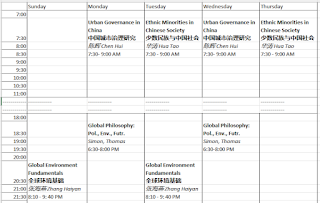China ‘Plus’ Studies: Studying China at the Intersection of its Relations with Others

Despite ongoing restrictions which make it difficult for scholars to visit and research China within its own territory, Rebecca Ash-Cervantes argues that China has already made itself accessible to scholars all over the world through its interactions with others. China’s rise came with both economic improvements, as well as greater renown on the world stage. Not only for the nation itself, but also for the Chinese people for whom there are many centuries old diaspora in most nations around the world. We saw the expansion of Chinese embassies and consuls, the proliferation of the sometimes-controversial Confucius Institutes, multinational Chinese firms and the like signaling this new age for China. Pre-pandemic China scholars found themselves spending copious amounts of time in China, studying these changes and trying to better understand China through their various angles of study. However, with border restrictions, visa limitations, and exorbitant flight and quarantin...


